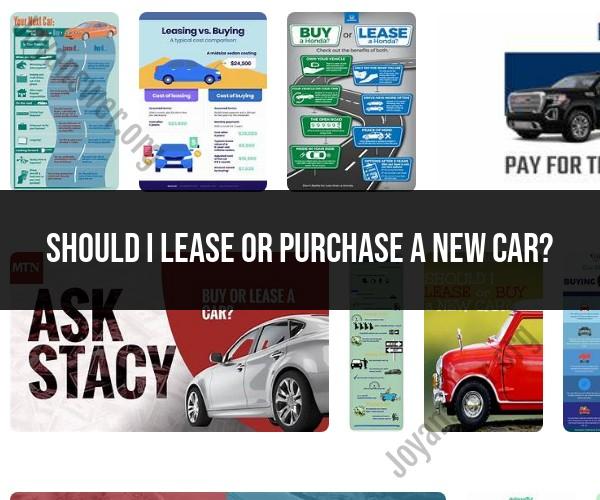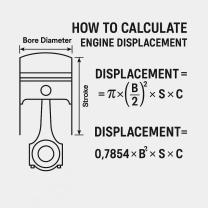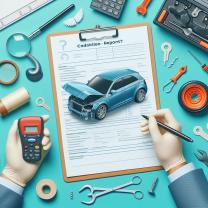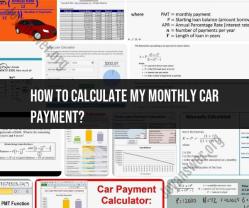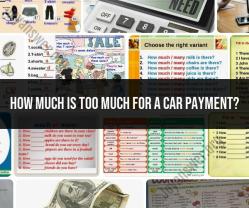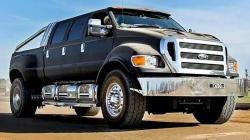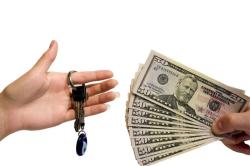Should I lease or purchase a new car?
The decision to lease or purchase a new car depends on your personal financial situation, driving habits, and preferences. Here's a decision-making guide to help you choose between leasing and buying:
Leasing a New Car:
Pros:
- Lower Monthly Payments: Lease payments are typically lower than loan payments when purchasing a new car.
- Warranty Coverage: Leased cars are often covered by the manufacturer's warranty for the duration of the lease, which means fewer out-of-pocket repair costs.
- Newer Vehicle: You get to drive a newer car with the latest features every few years.
- No Long-Term Commitment: Leases typically last for 2-3 years, allowing you to switch to a new vehicle more frequently.
Cons:
- No Ownership: You don't own the car, and at the end of the lease, you have to return it or buy it at its residual value.
- Mileage Limits: Most leases come with mileage limits, and exceeding them can result in additional charges.
- Wear and Tear Fees: You may be charged for excessive wear and tear on the leased vehicle.
Purchasing a New Car:
Pros:
- Ownership: When you buy a car, you own it, and you can keep it as long as you want without monthly payments once the loan is paid off.
- No Mileage Limits: You can drive as many miles as you want without worrying about overage charges.
- Equity: As you pay off the car loan, you build equity in the vehicle, which can be used as a trade-in or down payment on your next car.
- Customization: You can modify and customize the car as you see fit.
Cons:
- Higher Monthly Payments: Monthly loan payments are typically higher than lease payments.
- Depreciation: New cars depreciate quickly, and you may lose more money in terms of resale value over time.
- Maintenance Costs: You're responsible for maintenance and repair costs once the manufacturer's warranty expires.
To decide whether to lease or buy, consider the following:
Budget: If you have a strict monthly budget and want lower payments, leasing may be a better option. If you can afford higher monthly payments and prefer long-term ownership, buying could be the way to go.
Mileage: If you have a long daily commute or plan to take many road trips, buying might be a better choice due to the lack of mileage limits.
Ownership vs. Variety: Do you prefer owning a car long-term or driving a different vehicle every few years? Ownership provides more flexibility for customization and long-term use, while leasing offers variety and a continuous supply of new cars.
Resale Value: If you're concerned about depreciation and want to build equity in a vehicle, buying is the better option.
Future Plans: Consider your future needs and plans. If your life circumstances are likely to change in a few years, leasing might make more sense to ensure you have the right vehicle for your evolving needs.
Ultimately, the choice between leasing and buying depends on your specific circumstances and priorities. It's essential to carefully evaluate your financial situation and driving preferences to make an informed decision.
Lease or Purchase: Deciding on a New Car
When deciding whether to lease or purchase a new car, there are a number of factors to consider, including your budget, needs, and driving habits.
Pros and Cons of Leasing a New Vehicle
Pros:
- Lower monthly payments than financing a purchase
- No down payment is typically required
- Always driving a new car
- Less maintenance and repair costs
Cons:
- Mileage limits
- Wear-and-tear charges
- No ownership at the end of the lease
- Early termination fees
Advantages and Drawbacks of Purchasing a New Car
Advantages:
- Ownership at the end of the loan term
- No mileage limits
- No wear-and-tear charges
- More flexibility in terms of customization and modifications
Drawbacks:
- Higher monthly payments than leasing
- Down payment is typically required
- Depreciation in value
- More maintenance and repair costs
Financial Considerations in Lease vs. Purchase
When making a financial decision between leasing and purchasing a new car, it is important to consider the following:
- Upfront costs: Leasing typically requires no down payment, while purchasing a new car typically requires a down payment of at least 20%.
- Monthly payments: Lease payments are typically lower than monthly payments for a loan.
- Total cost: The total cost of leasing a car is typically higher than the total cost of purchasing a car, especially if you keep the car for more than the lease term.
- Equity: When you purchase a car, you build equity in the vehicle over time. This means that the car becomes more valuable as you pay it off. With leasing, you do not build equity in the vehicle.
Personal Factors Influencing the Decision on a New Car
In addition to financial considerations, there are also a number of personal factors that can influence your decision about whether to lease or purchase a new car, such as:
- Driving habits: If you drive a lot of miles each year, leasing may not be a good option for you, as you may exceed the mileage limit and incur additional charges.
- Need for a new car every few years: If you like to drive a new car every few years, leasing may be a good option for you.
- Desire to own your vehicle: If you want to own your vehicle outright, purchasing is the only option.
Conclusion
Ultimately, the decision of whether to lease or purchase a new car is a personal one. There is no right or wrong answer. The best option for you will depend on your budget, needs, driving habits, and personal preferences.
